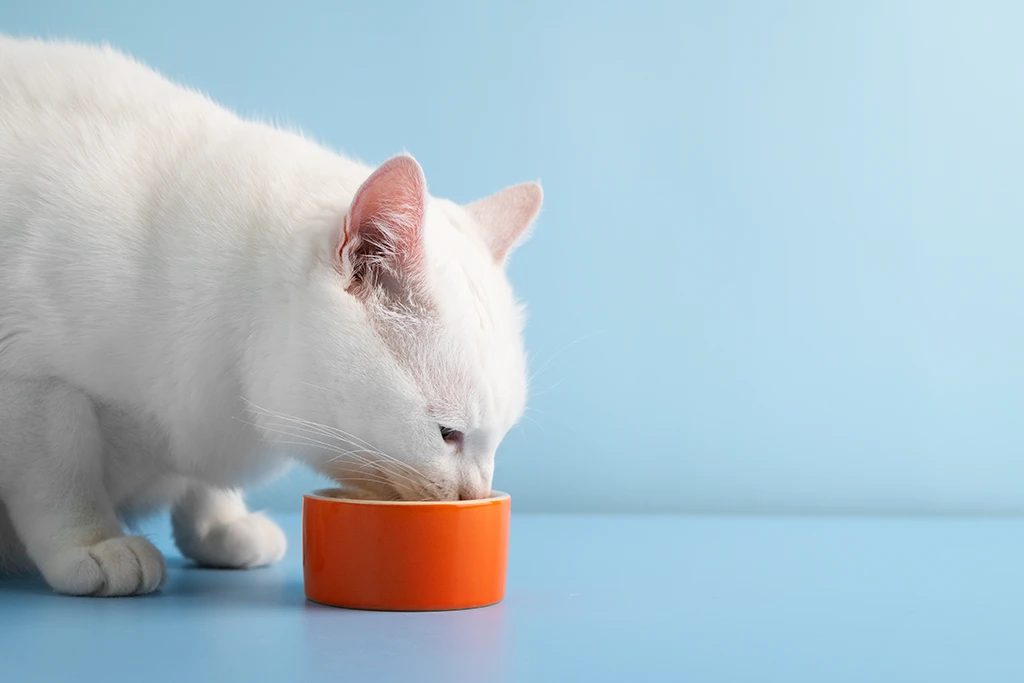

Cats serve as wonderful companions, bringing joy, laughter, and comfort to their owners. As responsible caregivers, cat parents strive to ensure their pets are healthy, happy, and vibrant. A significant aspect of maintaining a cat’s overall health is supporting their immune system. This intricate network within a cat’s body plays a critical role in protecting them against various illnesses, infections, and health concerns. By enhancing their immune system, cats enjoy longer and healthier lives.
But what exactly constitutes a cat’s immune system, and how do cat owners effectively support it? This article provides essential information for cat parents looking to naturally strengthen their feline friend’s immune health, offering practical steps and insights that lead to notable improvements in their well-being.
Table of Contents
ToggleA complex web of white blood cells, organs, tissues, and other immune components makes up a cat’s immune system, all working together to identify and eliminate harmful invaders like bacteria, protozoa, viruses, fungi, and toxins. This intricate system is critical for protecting cats from infections and keeping them resilient and energetic. Some of the critical functions of the immune system are listed below.
Infection Defense: The immune system’s primary role is identifying and neutralizing pathogens, such as bacteria, viruses, parasites, etc. To repel these invaders and maintain a cat’s health, an effective immune system is important. A study showed that “Higher protein intake in cats activate immunological mechanisms, leading to an increase of eosinophilic granulocytes, which indicates an activation of immunological mechanisms,” (Paßlack, N., et al., 2017).
Wound Healing: The immune system assists with tissue repair after injuries, helping wounds heal while preventing infections.
Allergy and Stress Response: The immune system also manages reactions to allergens, whether from food, environmental triggers, or insect bites. Cats with strong immune systems have fewer severe allergy symptoms, which improves their lives.
Overall Health Maintenance: From skin and coat health to energy levels, the immune system contributes to a cat’s entire well-being.
As responsible pet parents, understanding how the immune system functions helps make better choices to support and enhance the cat’s health.

To effectively support a cat’s immunity, it’s essential to identify what weakens it. Several lifestyle, environmental, and health factors impact a cat’s immune health, increasing their susceptibility to illnesses. Below are some of the primary offenders.
Cats with chronic illnesses, like Feline Immunodeficiency Virus (FIV) or Feline Leukemia Virus (FeLV), face ongoing challenges to their immune health. These viruses suppress immune responses, making cats more vulnerable to secondary infections. Health conditions like kidney disease or diabetes also place a significant strain on the immune system, reducing its ability to fight off pathogens effectively. For these cats, maintaining a strong immune system is especially critical.
The updated AAFP Feline Retrovirus Management Guidelines emphasize the importance of testing cats for FeLV and FIV, focusing on preventive healthcare strategies and prompt identification and treatment of illness (Little, S., et al., 2020).
A cat’s immune health is directly tied to the quality of its diet. Nutritional deficiencies in essential vitamins, minerals, and amino acids, such as taurine and vitamin C, weaken the immune system. As obligate carnivores, cats require particular nutrients that are only present in meat. Diets that lack high-quality protein sources compromise immune function, leaving cats more prone to illnesses.
Just like in humans, stress has a profound impact on a cat’s immune health. Whether it’s from environmental changes, such as moving to a new home, introducing new pets, or loud, chaotic surroundings, stress weakens a cat’s immune response. If uncontrolled, long-term or chronic stress raises a cat’s risk of infections and other health problems. A study in the ournal Cellular Immunology concluded that “Stress increases neuroendocrine hormones and has detrimental effects on immune function, including reduced NK cell activity, lymphocyte populations, lymphocyte proliferation, antibody production, and reactivation of latent viral infections, leading to delayed wound healing, impaired vaccination responses, and increased cancer development,” (Marketon, J., & Glaser, R., 2008).
Kittens and older cats have weaker immune systems compared to healthy adult cats. Kittens are still developing their immunity, while older cats naturally experience a decline in immune function. This makes them more susceptible to infections and health complications. A study on the age-related differences in parameters of feline immune status showed that “Age-related changes in feline immune status include lower WBC, lymphocyte, and eosinophil counts, but no significant differences in complement activity or serum acute-phase proteins,” (Campbell, D., et al., 2004). Tailoring their care, diet, and supportive measures based on their age makes a significant difference.
Exposure to environmental toxins like pesticides, certain household cleaning products, and even secondhand smoke negatively affects a cat’s immune system. These poisons impair organ function and put an additional strain on their immune system, resulting in long-term health problems. A literature review showed that “Mainstream tobacco smoke exposure leads to immunosuppressive changes, decreased lymphocyte proliferation, and suppressed antibody production in animals,” (Johnson, J., et al., 1990).
Cats are generally meticulous groomers, but their environment also plays a big role in immune health. A dirty litter box, unclean food dishes, and bedding increase exposure to harmful bacteria and viruses, putting extra strain on their immune system. By keeping their environment clean, cat parents lower their chance of getting the cats sick and keep their immune systems strong.

Boosting a cat’s immune system involves a combination of good nutrition, stress management, physical care, and environmental support. Here are practical, vet-reviewed tips to help a cat stay resilient and healthy.
One of the most effective ways to ensure immune health is through regular vet visits. Routine check-ups allow the cat’s veterinarian to monitor the cat’s health, detect potential issues early on, and provide vaccines and other preventive care as needed. Vaccinations protect against several diseases that otherwise weaken a cat’s immune system.
In addition to check-ups, a veterinarian also recommends specific nutritional supplements or adjustments based on the cat’s unique needs. For example, older cats benefit from additional immune support, while kittens require a tailored approach to diet and health.
A balanced diet is the foundation of a healthy immune system. Cats need a diet rich in high-quality proteins, vitamins, and minerals to thrive. Foods with minimal processing and no artificial additives are ideal.
Consider incorporating immune-boosting foods.
Protein-Rich Meats: Chicken, turkey, and fish are excellent sources of protein essential for building and repairing tissues and supporting immune function.
Pumpkin: High in fiber and water, pumpkin aids in digestion and hydration, both of which are essential for a well-functioning immune system.
Bone Broth: Packed with nutrients like collagen, amino acids, and glucosamine, bone broth supports joint health and immunity, especially in older cats.
Additionally, omega-3 fatty acids from fish support immune health and reduce inflammation, making it an excellent addition to a cat’s diet.
Physical activity not only keeps a cat’s weight in check but also supports a healthy immune system. Exercise helps improve blood circulation, supports cardiovascular health, and reduces stress, factors that all contribute to a robust immune system.
Encourage a cat to move with engaging activities.
Interactive Toys: Toys such as feather wands and laser pointers provide fun and physical exercise.
Scratching Posts and Climbing Shelves: Cats love to climb, and providing vertical spaces helps them get the exercise they need.
Puzzle Feeders: These provide mental stimulation while keeping a cat active, supporting both mental and immune health.
Stress weakens a cat’s immune response, making it crucial to create a calm, stable environment. Cats thrive on routine, so aim to keep feeding, playtime, and grooming schedules consistent.
Below are some ways to reduce stress for a healthier immune system.
Create Safe Spaces: Designate a quiet, comfortable area where a cat retreats when feeling overwhelmed.
Calming Products: Pheromone diffusers or sprays create a calming effect, helping stressed-out cats feel more relaxed.
Gradual Changes: When introducing new pets, people, or changes, do so gradually to help a cat adjust and reduce anxiety.
Keeping a cat’s environment clean helps prevent the spread of bacteria and viruses that challenge their immune system. Regularly clean litter boxes, wash food and water dishes, and vacuum pet areas to remove hair and dander.
Make sure to avoid harsh cleaning chemicals that harm a cat. Opt for pet-safe cleaning products to maintain a hygienic home without compromising a cat’s immune health.
While a high-quality diet meets most of the cat’s needs, some nutritional supplements provide additional immune support. Always check with the cat’s vet before adding supplements, as some are not suitable for all cats.
Popular immune-boosting supplements include:
Probiotics: These beneficial bacteria support gut health, which is directly linked to immune function. A balanced gut microbiome aids in nutrient absorption and provides a defense against harmful bacteria.
Omega-3 Fatty Acids: Found in fish oils, omega-3s help reduce inflammation and support immune health. They’re particularly helpful for older cats or those with chronic inflammatory conditions.
L-Lysine: This amino acid is often recommended for cats prone to upper respiratory infections, such as feline herpesvirus. L-lysine helps reduce the frequency of flare-ups.
Antioxidants: Vitamins C and E protect cells from free radicals, reducing cellular damage and supporting immune function.
CBD Oil: CBD interacts with the endocannabinoid system (ECS), which plays a role in regulating various bodily functions, including immune response. Paws and Claws CBD oil helps promote homeostasis and support a balanced immune system.
Maintaining a healthy weight is essential for immune health. Obesity weakens a cat’s immune system with increased pro-inflammatory cytokines and immune cell concentrations in adipose tissue (Velde, H., et al., 2013)., increasing the risk of various health problems, including diabetes and heart disease.
Work with the cat’s veterinarian to determine the best portion sizes for a cat, and avoid free-feeding if weight is a concern. Keeping a cat at an ideal weight supports overall immune health and enhances their quality of life.
Certain foods enhance immune health and are given as treats or additions to meals. Some immune-boosting food options are listed below.
Blueberries: These are packed with antioxidants, which help neutralize free radicals and support immune function.
Salmon and Tuna: Rich in omega-3s, these fish promote skin health, reduce inflammation, and support the immune system.
Spinach: While not for every cat, small amounts of spinach provide iron, vitamin C, and fiber for digestive health.
When adding new foods, introduce them gradually to avoid any digestive upset and observe how a cat reacts.
Cats are social creatures that need love, attention, and interaction. A happy, emotionally fulfilled cat often has a stronger immune system. Spending time with a cat, whether through grooming, play, or simply sitting together, helps reduce their stress and improve their overall well-being.
Providing toys, scratching posts, and cozy beds keeps them entertained, while positive interaction and attention fulfill their emotional needs. A happy, content cat is naturally more resilient to stress-related illnesses, which helps them lead a longer, healthier life.
Boosting a cat’s immune system is a multi-faceted process that involves balanced nutrition, regular check-ups, a stress-free environment, and thoughtful supplementation. By focusing on these areas, cat parents are giving their cat the best possible chance to lead a healthy, vibrant life.
Every cat is unique, so always tailor the approach based on their specific needs. A proactive, well-rounded approach that includes proper veterinary care, immune-boosting food, exercise, and a loving home environment goes a long way in keeping a cat healthy. Remember, a healthy cat is a happy cat, and a strong immune system is the foundation of their well-being.
References

Table of Contents
Toggle